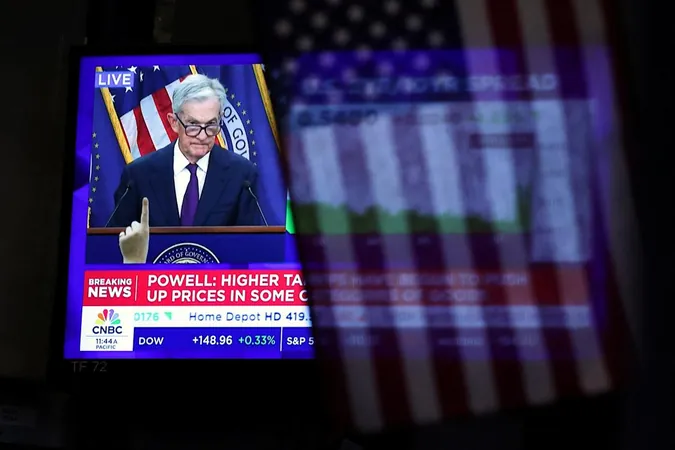
Fed's Rate Cut: A Global Boost for Property Investment, But Hong Kong Faces Unique Struggles
2025-09-22
Author: Kai
In a move set to ignite property investments worldwide, the US Federal Reserve's recent quarter-point interest rate reduction signals the start of a new era of easing. Analysts are buzzing with anticipation about the potential implications for global markets.
However, the story takes a different turn for Hong Kong and mainland China, where ongoing foundational challenges and geopolitical tensions may dampen the anticipated benefits.
Analysts Predict a Shift in Global Investment Trends
Pamela Ambler, head of Asia-Pacific capital markets research at JLL, points out that it's rare for central banks to implement a single rate cut. This latest adjustment is likely just the beginning of a series of reductions, prompting a resurgence in property investment interest.
The JLL global bid intensity index, which measures investment competitiveness, recently marked its first improvement since Donald Trump's presidency began, reflecting a renewed vigor among investors eager to seize market opportunities.
Interest Rate Cuts: A Double-Edged Sword for Hong Kong
During its latest meeting, the Federal Reserve cut the target rate to a range of 4.0% to 4.25%. Though the move has been widely welcomed, its effects on Hong Kong are tempered. The Hong Kong Monetary Authority mirrored the Fed’s action with a rate cut to 4.5%, but this has done little to invigorate the local commercial property market.
Recent reports show a staggering decline in Asia-Pacific commercial real estate volumes, with Hong Kong experiencing a 45% drop in investment to just $900 million—a grim reminder of the 2008 financial crisis.
Market Responses and Future Outlook
In terms of market dynamics, experts like Oliver Salmon from Savills emphasize that lower interest rates should enhance investment activities in commercial properties by making financing more affordable. Yet, the pervasive oversupply of office spaces in Hong Kong is likely to keep asset prices depressed.
While some investors may see this as an opportune moment to enter the Hong Kong market, capital controls from China pose additional barriers to significant investments.
Despite the rate cuts alleviating certain pressures, analysts caution that they are not a cure-all for the deeper structural issues plaguing the region’s property markets.
A Call to Action for Investors?
As institutional investors weigh their options, the prospect of lower financing costs might encourage some to act now, especially with current asset valuations adjusting to persistent weak demand.
Ambler poses a critical question for potential buyers: "Are they ready to capitalize on current rental comparisons versus pre- and post-global financial crisis metrics?" As the market landscape evolves, investors are sharpening their strategies—eyeing the opportunities hidden within the turbulence.





 Brasil (PT)
Brasil (PT)
 Canada (EN)
Canada (EN)
 Chile (ES)
Chile (ES)
 Česko (CS)
Česko (CS)
 대한민국 (KO)
대한민국 (KO)
 España (ES)
España (ES)
 France (FR)
France (FR)
 Hong Kong (EN)
Hong Kong (EN)
 Italia (IT)
Italia (IT)
 日本 (JA)
日本 (JA)
 Magyarország (HU)
Magyarország (HU)
 Norge (NO)
Norge (NO)
 Polska (PL)
Polska (PL)
 Schweiz (DE)
Schweiz (DE)
 Singapore (EN)
Singapore (EN)
 Sverige (SV)
Sverige (SV)
 Suomi (FI)
Suomi (FI)
 Türkiye (TR)
Türkiye (TR)
 الإمارات العربية المتحدة (AR)
الإمارات العربية المتحدة (AR)